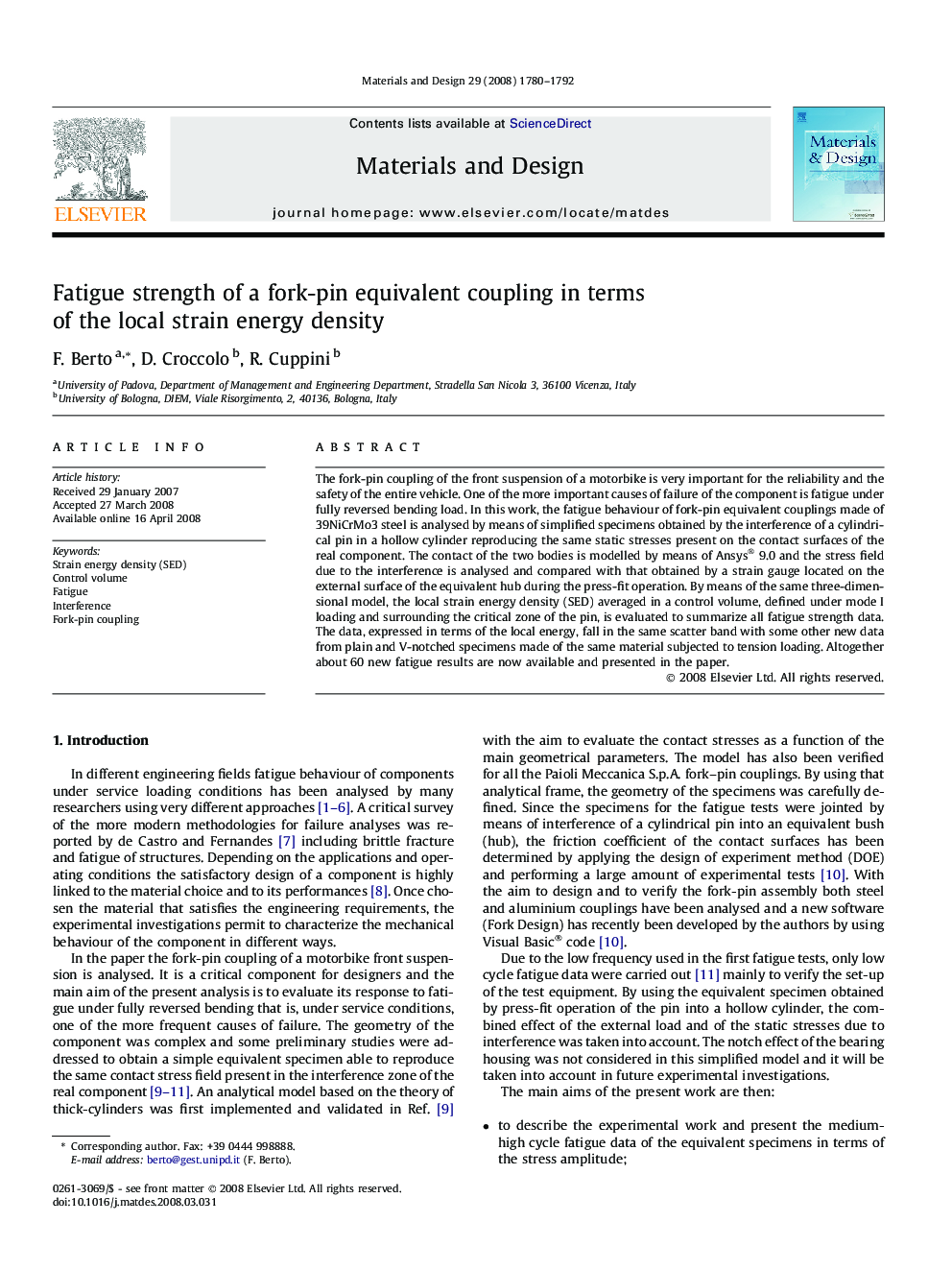| Article ID | Journal | Published Year | Pages | File Type |
|---|---|---|---|---|
| 833167 | Materials & Design (1980-2015) | 2008 | 13 Pages |
The fork-pin coupling of the front suspension of a motorbike is very important for the reliability and the safety of the entire vehicle. One of the more important causes of failure of the component is fatigue under fully reversed bending load. In this work, the fatigue behaviour of fork-pin equivalent couplings made of 39NiCrMo3 steel is analysed by means of simplified specimens obtained by the interference of a cylindrical pin in a hollow cylinder reproducing the same static stresses present on the contact surfaces of the real component. The contact of the two bodies is modelled by means of Ansys® 9.0 and the stress field due to the interference is analysed and compared with that obtained by a strain gauge located on the external surface of the equivalent hub during the press-fit operation. By means of the same three-dimensional model, the local strain energy density (SED) averaged in a control volume, defined under mode I loading and surrounding the critical zone of the pin, is evaluated to summarize all fatigue strength data. The data, expressed in terms of the local energy, fall in the same scatter band with some other new data from plain and V-notched specimens made of the same material subjected to tension loading. Altogether about 60 new fatigue results are now available and presented in the paper.
